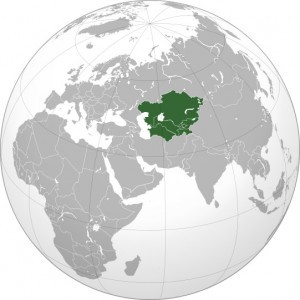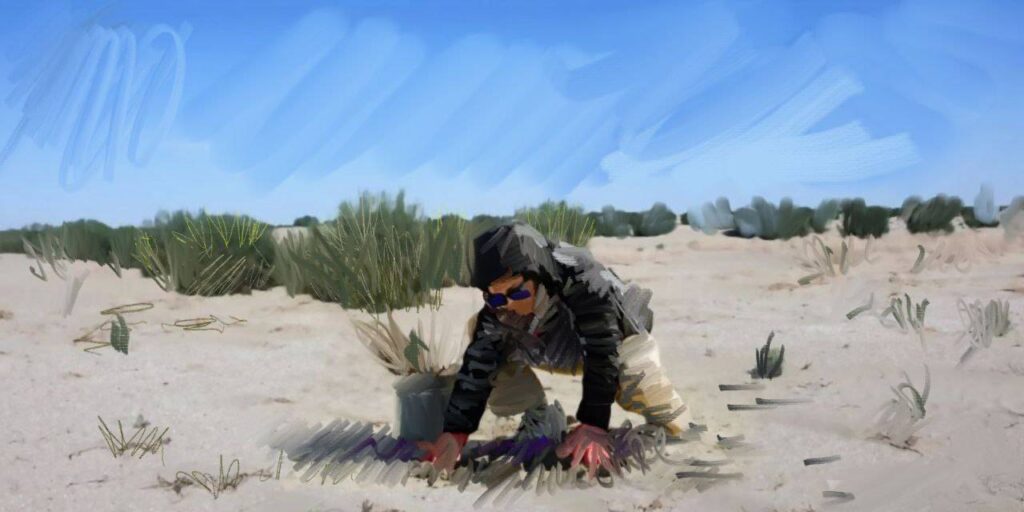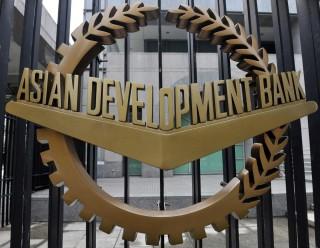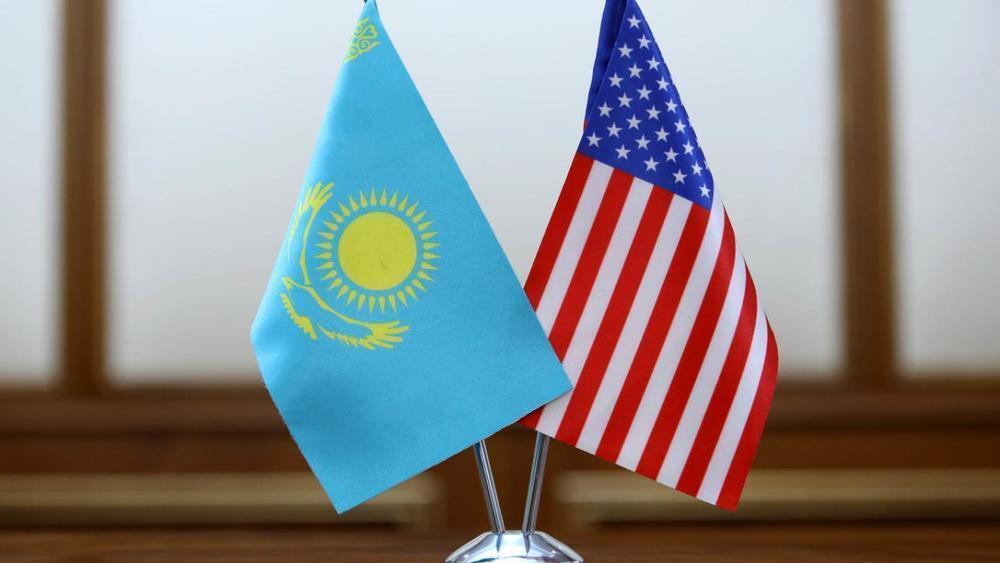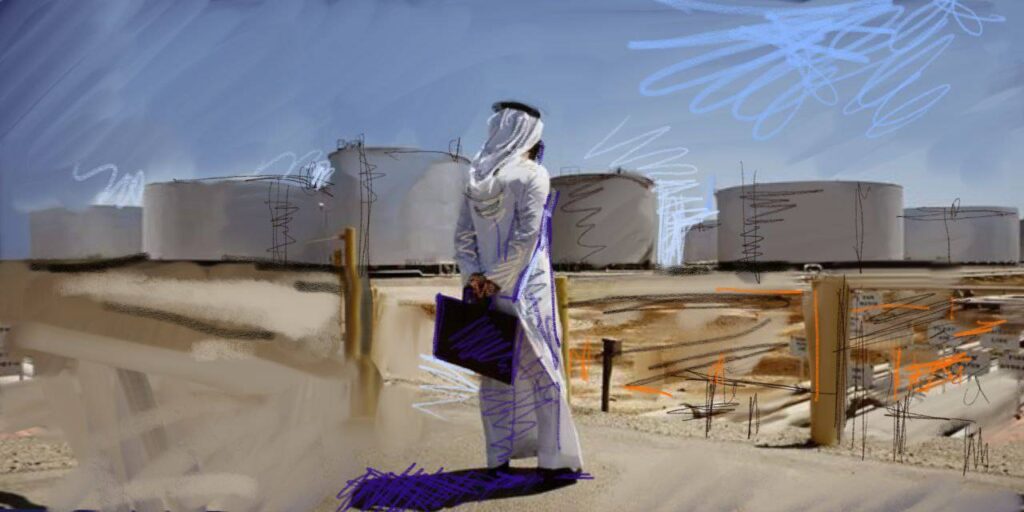BISHKEK (TCA) — The Times of Central Asia presents to its readers Stratfor’s Global Intelligence, a weekly review of the most important events that happened in the world — from Europe to Middle East to Russia to Central Asia to Afghanistan to China and the Americas.
The Week That Was
A Consolation Prize for Peace in Colombia
In the days leading up to the Colombian referendum on a peace deal with the Revolutionary Armed Forces of Colombia (FARC), Colombian President Juan Manuel Santos was rumored to have already been putting the final touches on his Nobel Peace Prize acceptance speech. Apparently, the Nobel Prize committee felt the Colombian leader still deserved a consolation prize after the referendum failed by an extremely slim margin (50.2 percent against and 49.7 in favor) and low voter turnout. This was not a vote against peace, but a vote calling for more accountability and less leniency for the FARC. There will now be a serious effort to try and salvage the peace deal as Santos brings in the opposition Democratic Center, led by his political archrival former President Alvaro Uribe, to renegotiate the thorniest terms of the agreement. Santos has only until mid-2018 to try and secure a new deal before a new election that could well favor Uribe’s followers. They will demand punitive measures for the FARC and drag out the negotiations, and the growing intractability of the negotiation will spread disillusionment and widen the gap between FARC leaders and local units. We have no doubt that Santos will put all his energy into cementing a new deal, but the prospect for a formal peace just got a lot dimmer.
Big Mideast Energy Reforms Underway
It was a noteworthy week in the Middle East’s energy sector with three developments happening in three of its biggest oil producing countries. In Iran, the first new Iran Petroleum Contract was awarded to a unit affiliated to Setad, a business conglomerate under Ayatollah Ali Khamenei. For President Hassan Rouhani, awarding the first contract to a company closely linked to the supreme leader is designed to send a message that various stakeholders, such as the Islamic Revolutionary Guard Corps (IRGC) and the clerical establishment, can still profit from the oil sector despite the country bringing in foreign companies. Across the Gulf, Saudi Aramco’s CEO announced that its planned initial public offering will include all of its units, including upstream operations. Previously most had thought that the IPO would focus on downstream and include few, if any, upstream assets. By including them, Riyadh is trying to be more transparent, a key focus of the Vision 2030 reform package. Of course, including upstream assets would also boost the value of any IPO. And in the United Arab Emirates, Abu Dhabi’s national oil company, ADNOC, announced that it would consolidate its two largest offshore oil-producing units starting in 2018. While Saudi Aramco’s reforms have gotten more press, ADNOC is undergoing substantial shifts under new managing director Sultan Ahmed al Jaber since his appointment in February. Like Aramco, ADNOC is moving in the direction of greater transparency and, more important, streamlining its business units, possibly consolidating from 18 units to just six, to drive down costs.
More Signs that Beijing’s Cross-Strait Policy is Not Panning Out
On Oct. 5, Taiwanese President Tsai Ing-wen sent minor shockwaves through cross-strait relations when she told the Wall Street Journal that the island would not “bow to pressure” from mainland China, reiterating that Taiwan should reduce its economic dependence on China — a relationship that Tsai said had become more competitive than complementary. Beijing responded on Oct. 6 by emphasizing its “unshakeable” commitment to the One China principle and restating that it would not reopen official communication channels with Taipei until Tsai acknowledged the principle, too. It was not all that surprising (but nonetheless notable) when Tsai announced Oct. 7 that Taiwan would pursue greater maritime cooperation with Japan, a country that has made constraining China’s rise a paramount national interest. Beijing’s strategy of trying to use economic interdependence as a tool for eventual reunification is falling flat. A generational shift in Taiwan has advanced a political class that has little personal connection to the mainland and is more willing to drive a nationalist agenda. Taiwan is also watching the shifting strategic environment as Japan is starting to get more involved in maritime disputes with Beijing. It will be important to watch how Japan responds to Tsai’s appeal for more maritime cooperation with Tokyo, especially as Japan is already bracing itself for escalated tension in the East China Sea.
The Philippines’ Distancing From the U.S.
It was another week of heated rhetoric out of Manila, but the statement that stood out most came from Philippine Defense Minister Delfin Lorenzana, who said that plans for any new joint patrols and naval exercises between the United States and the Philippines in the South China Sea are now on hold. The defense minister also said that the country intends to buy weapons from other countries such as China and Russia and that the Philippines could make up for a loss in U.S. military aid. The pause on joint drills is so far the most concrete translation of President Rodrigo Duterte’s words into action. It will undoubtedly strain the U.S.-Philippine relationship, but it is also a logical step for Manila to take ahead of Duterte’s Oct. 19-21 trip to Beijing, where he is hoping to extract some economic concessions and slow Chinese maritime expansion in return for Manila’s distancing from the United States. Even then, Duterte is not going to compromise on Philippine sovereignty over disputed islands, just as China is not going to limit its maritime activities. While waiting for Manila and Beijing to reach their red lines in negotiations, the United States can work through Japan to manage the Philippines in a broader security alliance.
Brexit Details Trickle Out
Last week was full of Brexit-related announcements. British Prime Minister Theresa May confirmed that formal negotiations with the European Union will start by March 2017. Several members of her team also said that Britain will focus on reducing immigration, regaining full sovereignty for Parliament, breaking free from the jurisdiction of the European Court of Justice and giving lawmakers the opportunity to decide what EU rules they want to keep. In a speech during the Conservative Party convention, May criticized bankers and corporations and said her government would protect the working class. Soon after the speech, Chancellor of the Exchequer Philip Hammond attempted to do some damage control when he visited Wall Street and promised investors that Britain will seek a special deal for financial services when it leaves the European Union and will ensure the continued flow of international workers to London. France is meanwhile sending the United Kingdom the message that membership in the EU Common Market means accepting the four basic freedoms of the European Union. As France gears up for elections in 2017, a hard-line posture on Brexit concessions will be politically popular among Euroskeptic and mainstream political forces. French politicians are also quite enticed by the idea of attracting business relocating from Britain should the country lose access to the internal market. That is the kind of uncertainty that will apply downward pressure on the British pound.
Chad Creates More Enemies in the Energy Sector
A Chadian high court has ruled that an ExxonMobil-led consortium must pay $815 million in unpaid royalties as well as an additional $74 billion fine. While the fine caught eyes because of its size (it is around five times Chad’s annual GDP), Chad is not expecting to collect the fine, but rather hang it over ExxonMobil to renegotiate terms with the consortium. This could include increasing Chad’s stake in the consortium, which currently sits at 25 percent, or increasing the royalty rate. The decision fits in what has become a consistent pattern for Chad: It aggressively attempts to renegotiate contracts with oil companies by threatening to cancel their licenses, stop production, level heavy fines and/or kick out companies. Chad’s oil production levels are relatively low and the government’s budgets have become strained. Still, it is a country where stability is built on high budgets funneling into an extensive patronage network and a strong military and security apparatus. Chad will continue to be aggressive with international oil companies as a way to maintain that stability in the short term.
Rosneft Getting Closer to a Privatization Deal
The Russian government is finalizing plans to sell a stake in top oil firm Rosneft in November, according to Russian Economy Minister Alexei Ulyukayev, as the Kremlin and Rosneft have found a compromise to move ahead with the sale. The Kremlin is facing a $36 billion shortfall in its budget before the end of the year, and is counting on privatizing a 19 percent stake in Rosneft for $11.4 billion before then. Rosneft chief Igor Sechin has long been against the privatization but offered a compromise to the Kremlin to let his firm take over Bashneft (Russia’s 6th largest oil firm) in trade for privatizing part of Rosneft. Though the Kremlin initially barred the deal, Rosneft was given the green light earlier this week, allowing for the government to try and find a buyer for the expensive slice of Rosneft before the end of the year. The question now is who will that buyer be, with Russia courting energy firms from China, Japan and Italy, though with no serious offers yet. India has shown interest, but may not be able to afford the entire 19 percent. Moscow may be forced to cobble together a series of deals, though time is short. The Russian budget needs the cash before the end of the year.
Slow Progress in Ukraine
Several developments this week gave strong indications that negotiations between the United States and Russia over the conflict in Ukraine are unlikely to make meaningful headway in the final months of the Obama administration. Cease-fire violations along the line of contact in eastern Ukraine continued on a daily basis and plans for troops and weaponry withdrawing at three designated locations — Zolotoe, Petrovskoe, and Luganskaya — have produced mixed results. In the meantime, U.S. Assistant Secretary of State Victoria Nuland met with Russian officials in Moscow on Oct. 5 to discuss the Ukrainian conflict, after which Kremlin spokesman Dmitry Peskov said there were “no expectations of a breakthrough.” The lack of progress comes as little to no compromise has been made on the political side of the conflict, with Moscow announcing this week that it would suspend an agreement with Washington over joint nuclear and uranium research, attributing the decision to U.S. sanctions on Russia over Ukraine. Thus, the Ukrainians and separatists — as well as their power backers in the West and Moscow, respectively — appear unable or unwilling to reach a settlement at this time and are highly unlikely to do so before the end of the year.
Full Articles
North Africa: The Other Side of Europe’s Migrant Crisis
To talk of a single migrant crisis in Europe can be misleading. The eastern routes carrying migrants over the Mediterranean Sea have commanded international attention for the sheer number of Syrian refugees who have traversed them to enter Europe and for the European Union’s negotiations and subsequent migrant deal with Turkey that the crisis prompted. Despite their higher profile and amount of traffic, however, the eastern routes are not the only migrant paths into Europe across the Mediterranean, nor is Syria the only country from which migrants are fleeing. Thousands of migrants also reach Europe each year from North Africa by way of routes crossing the central and western Mediterranean.
A New Threat to Red Sea Shipping
An attack on a ship in the Red Sea raises fresh concerns about Yemen’s civil war. The apparent use of an anti-ship missile by Houthi fighters, if confirmed, would indicate that the group has acquired new capabilities, raising questions about the security of shipping in the waters off the Yemeni coast and the effectiveness of an arms embargo against the Houthis. If not the sign of a new weapon, the attack could suggest a shift in the group’s tactics that may equally threaten ships in the Red Sea.
In India, a Military Strategy Guided by Precision
South Asia is not known for its stability, but India and Pakistan’s military strategies could lead to greater insecurity in the region. Nuclear weapons, particularly tactical nuclear weapons that are launched on the battlefield, have been introduced into India and Pakistan’s military calculations, causing both sides to re-evaluate their policies. Originally, India’s unofficial military doctrine, Cold Start, relied on rapid, flexible conventional military operations to strike Pakistan while avoiding a protracted war that could increase the likelihood of nuclear retaliation. But Pakistan countered by developing a tactical nuclear response that made the prospect of large-scale fighting too risky for New Delhi and Islamabad. Nevertheless, India has sought alternate forms of deterrence against Pakistan’s asymmetric tactics. Using more limited military strikes, or “surgical deterrence,” India will decrease the chances of a wider conflict erupting. Still, escalation will remain an underlying risk.
A Daunting Outlook for India’s New Central Bank Head
India’s central bank is in the throes of change. The Reserve Bank of India kicked off a two-day monetary policy meeting on Oct. 3, marking the first meeting chaired by incoming Gov. Urjit Patel. In addition, India’s new six-member monetary policy committee, which will be taking over interest rate decisions from outgoing Gov. Raghuram Rajan, is making its debut at the conference. Though this is only the first meeting for the new governor and committee, the stakes are already high. The incoming monetary policy team will be hard-pressed to contain inflation — the Indian economy’s perennial bugbear — as effectively as Rajan did.
The Insidious Threat of Drug-Resistant Disease
When Alexander Fleming discovered penicillin in 1928, he ushered in a new era of medicine: the age of antibiotics. Infections that had once been fatal could now be treated with relatively simple cures. In the decades that followed, penicillin became just one of many antimicrobial drugs that enabled humans and animals to live longer, more productive lives. The proliferation of those drugs seemed to have few, if any, downsides.
But over the years, we have gotten into the habit — as so often with other resources, including fish and fresh water — of overusing and misusing antimicrobial medicines. Doctors turned to them to treat illnesses, including viral infections, where antibiotics would not actually help. In time, microbes were able to build a resistance to the antibiotics deployed against them.
The Week Ahead
Putin-Erdogan Meeting and Energy Coordination in Istanbul
Turkish President Recep Tayyip Erdogan will host Russian President Vladimir Putin in Istanbul on Oct. 10 on the sidelines of the World Energy Congress. With the frictions escalating between the United States and Russia in Syria, Turkey cannot fully rely on the United States for protective cover against Russian interference on the battlefield. For Turkey to proceed apace with its military operation in northern Syria without running into Russian-backed forces, Turkey will need to stay close to Moscow and maintain its dialogue. In return for its cooperation, Russia will expect Turkey to place limits on NATO activity in the Black Sea and move forward in finalizing agreements to build the TurkStream pipeline. If Turkish firm Botas and Russian firm Gazprom come to a deal soon on natural gas pricing, it will be a good sign that Ankara and Moscow’s dialogue is on track for now.
Several OPEC and non-OPEC countries have sent representatives to Istanbul from Oct. 8-13 to discuss possible coordination and expansion of OPEC’s production cut that was agreed to last month. Already, however, the meeting has gotten off to a rocky start. Russia’s Energy Minister Alexander Novak has stated that he does not believe that a deal will be reached at the meetings, as they are informal. In addition, Iranian Oil Minister Bijan Zanganeh has said he will not attend the meeting. From Russia’s perspective, it would prefer to wait to sees what OPEC actually agrees to in November before agreeing to anything. A high level committee from OPEC has been formed and will formally convene four times (twice with OPEC governors) between now and when OPEC hopes to reach and finalize a production cut Nov. 30 in Vienna.
More Nuclear Testing Expected Out of North Korea
Oct. 10 marks the 71st anniversary of North Korea’s ruling Workers’ Party. Pyongyang is known for staging provocative activities on national holidays, and the fact that Washington is occupied with elections could shape Pyongyang’s calculation for missile or nuclear tests around the time. Such speculation corresponds with a recent satellite imagery obtained by the U.S.-based 38 North group, which shows continuing activity at all three tunnel complexes at the Punggye-ri test site. The report suggested that the reason for the activity might be to collect data on North Korea’s fifth nuclear test, which took place on Sept. 9. However, given the sensitive timing and Pyongyang’s nature of unpredictability, another provocation cannot be ruled out.
Iran Plays the Kurdish Card Against Turkey
Kurdistan Regional Government President Massoud Barzani’s office has confirmed that the Kurdistan Democratic Party (KDP) leader will be visiting Tehran on an official visit at the invitation of Iran’s supreme leader. The visit could take place Oct. 12-13 and KRG Prime Minister Nechirvan Barzani was in Tehran last week setting the groundwork for discussions. Iran wants to create distance between Barzani and Ankara to prevent Turkey from using the Mosul operation against the Islamic State to expand its presence in northern Iraq. There has already been a big push by Iran-backed Shiite politicians in Baghdad against Turkey. It puts Barzani in an awkward position since Turkey is relying on its relationship with Barzani to justify its presence in Iraq. Iran can offer economic benefits to Barzani, including Baghdad’s cooperation in sustaining a fragile energy arrangement with the KRG, but it can also support Barzani’s political adversaries in Iraqi Kurdistan. Iran will also be pressuring the KRG to contain anti-Iranian Kurdish militants that have become more active.
The Venezuelan Opposition Tries to Maintain Momentum on Recall Referendum
The Venezuelan opposition coalition Democratic Unity Roundtable will hold a national rehearsal on Oct. 12 for a planned signature drive in late October. The intent of the signature drive is to obtain approval for a recall referendum against the president later this year. It is unlikely that the opposition will gain approval for a recall referendum against President Nicolas Maduro, since the government, which does not want to see the referendum held in 2016, maintains control over most of the institutions necessary for the referendum to proceed smoothly in the remainder of the year. Still, the Oct. 12 demonstrations may be another show of the opposition’s growing electoral base in the country.
Southern Europe in the Spotlight
Ministers of the eurozone will meet Oct. 10, and Greece’s bailout program will be one of the main topics on the agenda. Athens, which passed several reforms demanded by its creditors, hopes that the ministers will authorize the disbursement of the next tranche of the program, some 2.8 billion euros (roughly $3.1 billion). EU members have to present their draft budgets for 2017 to the EU Commission by Oct. 15. Officials in Brussels recently threatened to suspend development funds for Portugal and Spain after the countries failed to meet their deficit targets. However, the European Parliament is trying to delay the punishment and buy time for Lisbon and Madrid to present additional measures. The EU Commission will also be interested in the budgets of France and Italy, where electoral calculations are slowing down the process of deficit reduction.
From Free Movement of People to Free Movement of Workers
The German Cabinet will decide this week on a bill proposed by Labor Minister Andrea Nahles on limiting social assistance to EU citizens in Germany. With the changes, EU citizens would be able to receive welfare benefits in Germany only if they have been in the country for five years, are currently working or have worked for a significant amount of time. The objective of the legislation is to make Germany less attractive for EU citizens that only want to exploit the country’s welfare system, so that nationals from other countries cannot live in Germany without working. When former British Prime Minister David Cameron made similar requests last year, Merkel supported Britain. It is a step in the evolution from the “free movement of people” to the “free movement of workers.”
BRICS Meet in India
On Oct. 15, India will host the Brazil-Russia-India-China-South Africa (BRICS) Summit in the state of Goa, where about 800 delegates including Chinese President Xi Jinping and Russian President Vladimir Putin will discuss a range of multilateral issues. Chief among these will be counterterrorism, with Indian Prime Minister Narendra Modi expected to press Xi over China’s continued efforts at preventing Pakistani militant Masood Azhar from being blacklisted in the United Nations. Beijing is expected to return the favor by pressing New Delhi to support Chinese sovereignty over the South China Sea. Finally, it will be important to look for discussions on the creation of a BRICS credit agency, a BRICS free trade bloc, and any other announcements on Sino-Indo-Russian cooperation.
Keeping Watch on Gaza
A Salafist group that operates in the Gaza Strip fired an artillery rocket and a mortar shell into Israel on Oct. 4 and Oct. 5. Following the incidents, and arrests of some of its members by Hamas, the group named Ahfad Sahaba Aknaf Beit al Maqdis said it would escalate its attacks on Israel if Hamas did not release its members. The back and forth between Hamas and jihadist groups, often claiming affiliation to the Islamic State, follows a familiar pattern: Salafist groups competing with Hamas try to elicit a response out of Israel through attacks and Israel in turn holds Hamas accountable in retaliatory strikes. The risk is that Israel’s attacks on Hamas undermine the group’s ability to govern Gaza, potentially giving more space for Salafist groups to operate. It will be an important area to watch for further escalation.
